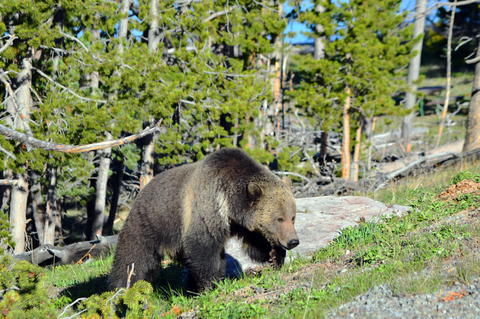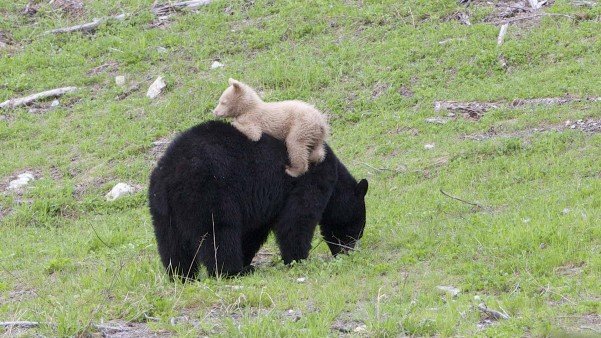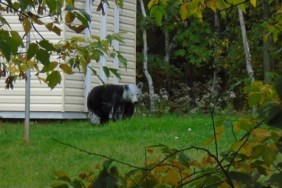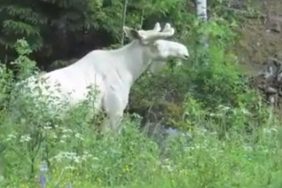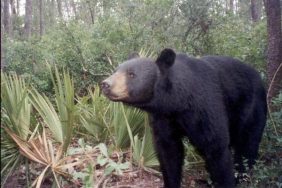Bear cubs have an especially rough first year of life. Only half are estimated to survive their first birthday. For one albino black bear cub recently spotted at Whistler-Blackcomb, scientists warn its chances could be even less.
Summer marks the bear’s mating season, a time when male bears often attack and eat small cubs, causing mother bears to alter their normal travel patterns. An albino bear, like the one recently photographed at the resort community of Whistler in British Colombia, it faces extra hurdles because of its distinct markings.
An employee at the resort took photos of the mother and what’s believed to be her albino cub frolicking in a field last Thursday.
RELATED: Rare Albino Deer Spotted in Tennessee
“I made some approximations, knowing where the best food supply is, and on a hunch I just got lucky and caught the two for a 45-minute span between meetings,” Arthur De Jong, the environmental planning manager for Whistler-Blackcomb told the CBC.
Along with being a target for predators, the mother and her cubs run the risk of becoming habituated to humans as more visitors come to view them in the coming months. For this reason, resort officials asked people to keep their distance.
“The fear mechanism that allows them to survive would be broken and he would likely not live long,” De Jong told the CBC.
Biologists are up in the air whether the cub is a true albino or a Kermode, which live in the north and central coast of B.C., but they are leaning toward albino because it does appear to have some pigmentation in its nose. In Native American cultures, they considered such albino bears as “spirit animals.”
RELATED: Albino Rare Calves Spotted in Australia
The cub, which is estimated at 5-months-old, has a light cream or caramel color that’s not exactly white, but scientists were still looking for a clear shot of pink-blue colored eyes to confirm it’s an albino.
Photo credit: Whistler Blackcomb Twitter @WhistlerBlckcmb
Meet Whistler’s newest celebrity! A rare white bear cub was spotted on Blackcomb this week. pic.twitter.com/GNvfOvSAif
— Carleton Lodge (@carletonlodge) June 12, 2016
Bears in Action
-
King of the mountain
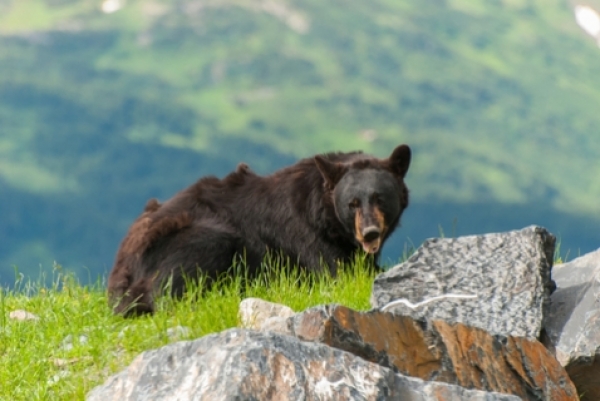
-
Here fishey, fishey
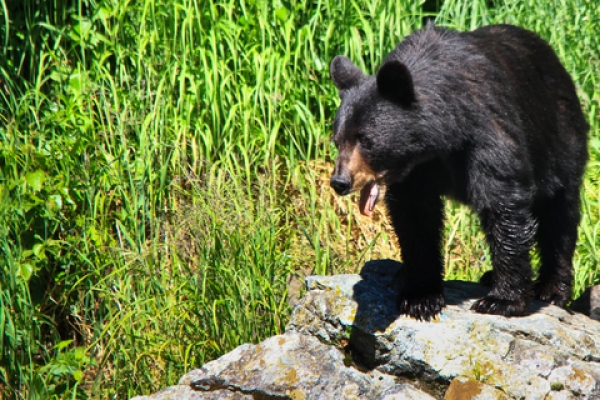
-
Get outta here!!!
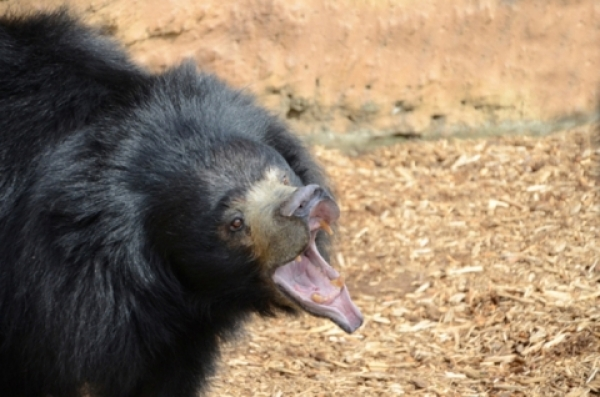
-
Hum Diddy Um Diddy Umpt
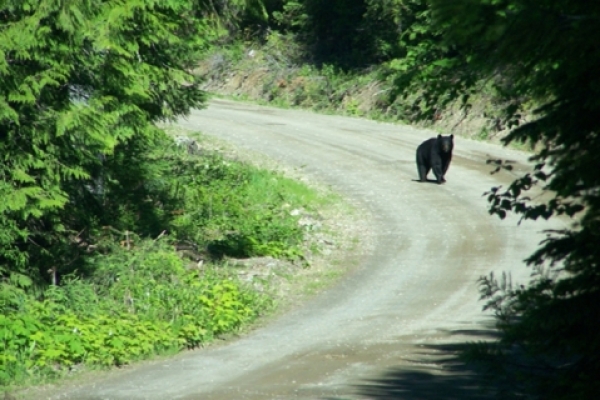
-
Who's that?
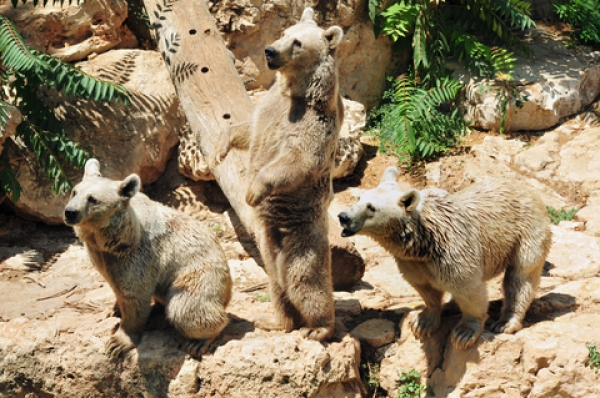
-
Hey, break it up you two!
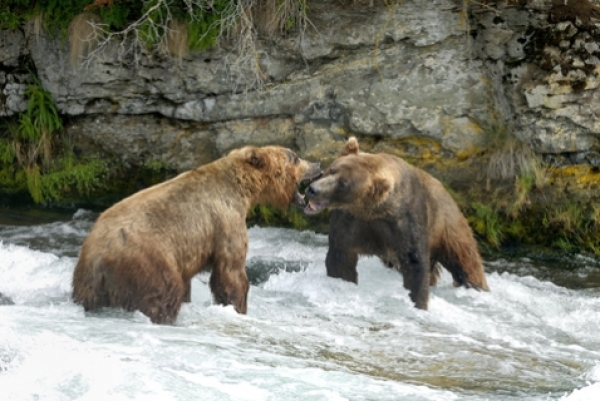
-
I hate fishing in the rain.
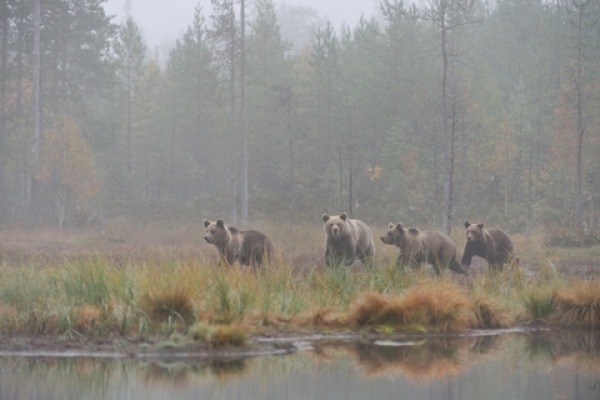
-
Is my hair straight?
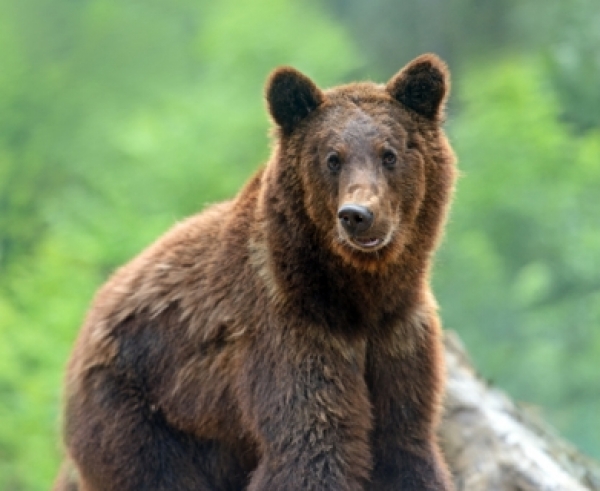
-
Play fighting? How cute.
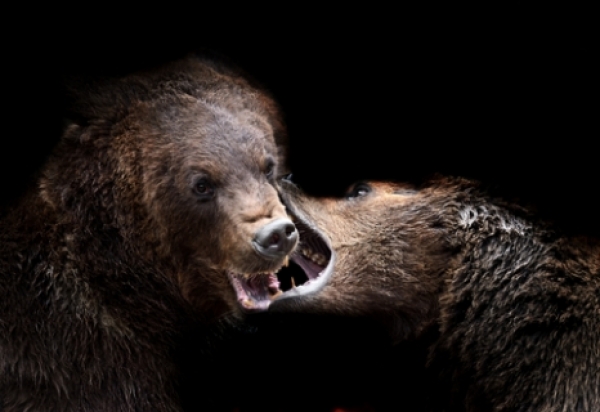
-
I thought I smelled a salmon.
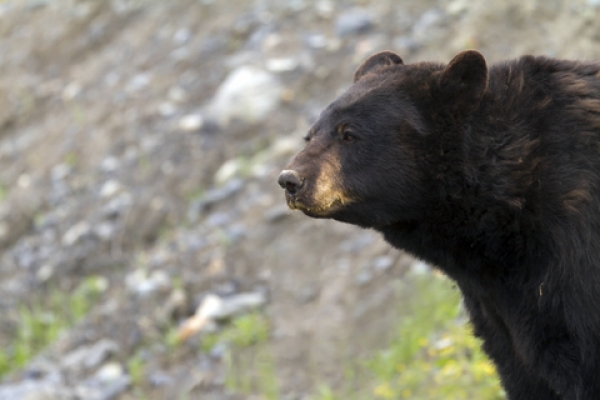
-
Hey don't look at me right now.
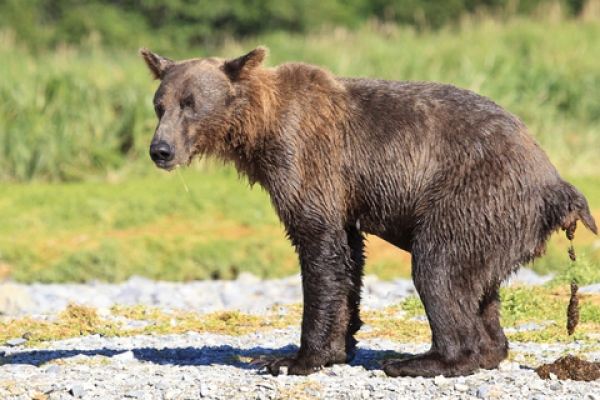
-
Yes!! Got one!
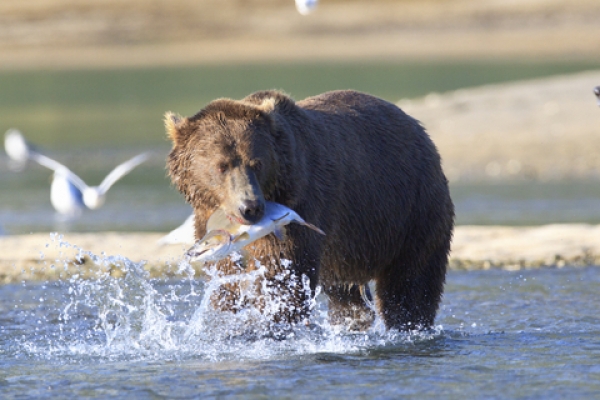
-
Fuzzy in tall grass.
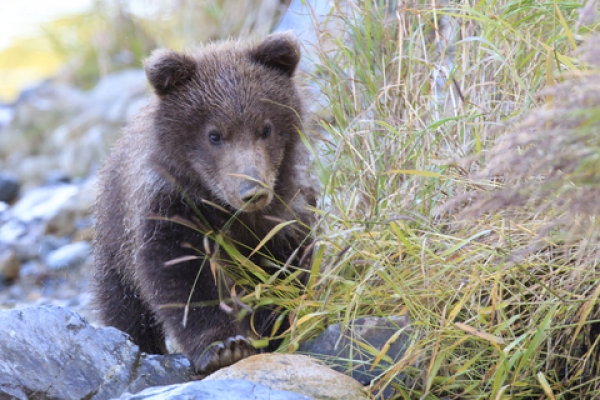
-
Now this is gonna happen.

-
Where's the ice?
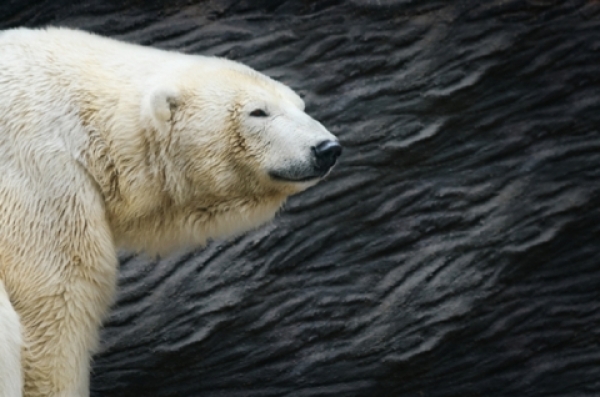
-
Don't mess with me.
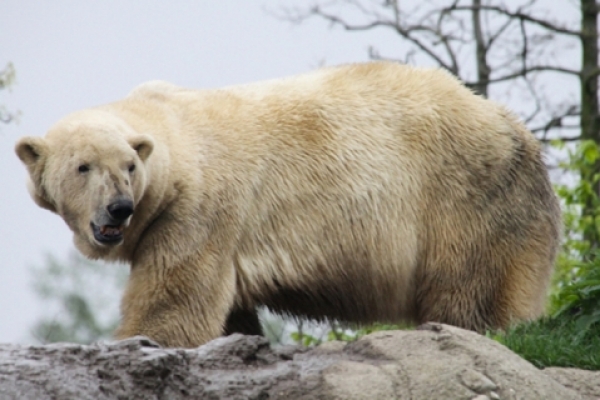
-
Man, am I tired
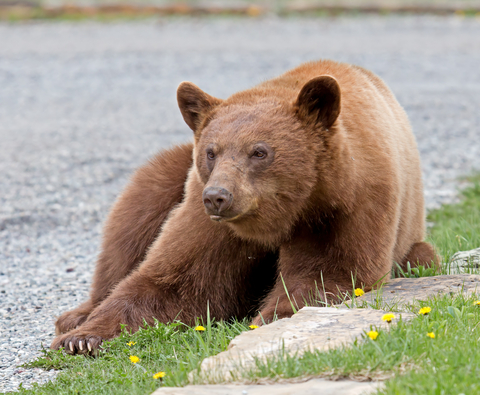
-
Come give me a hug, I'm crazy
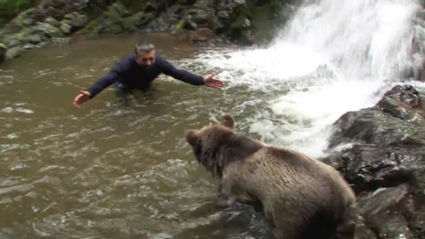
-
Damn, not this again
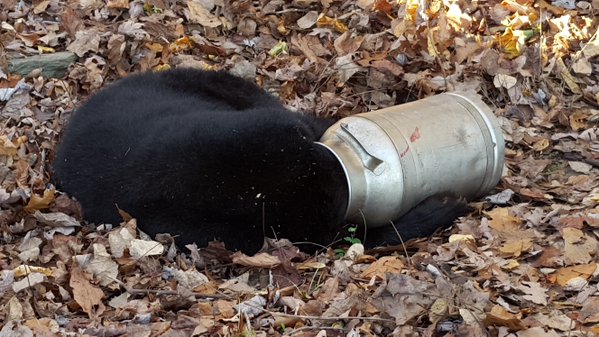
-
Paintballs are no match
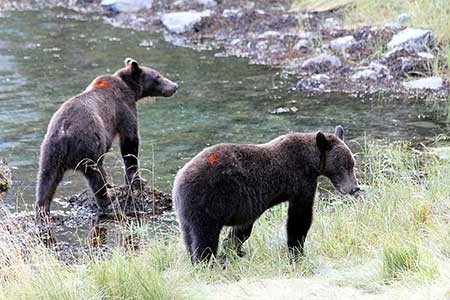
-
I will climb anything for an egg
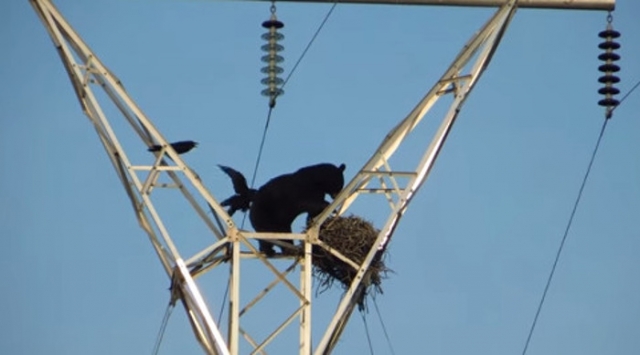
-
Ah, how cute
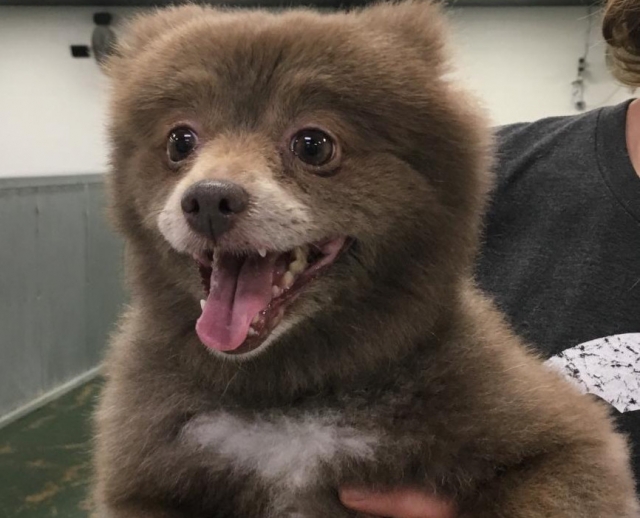
-
Now, which way to the campground
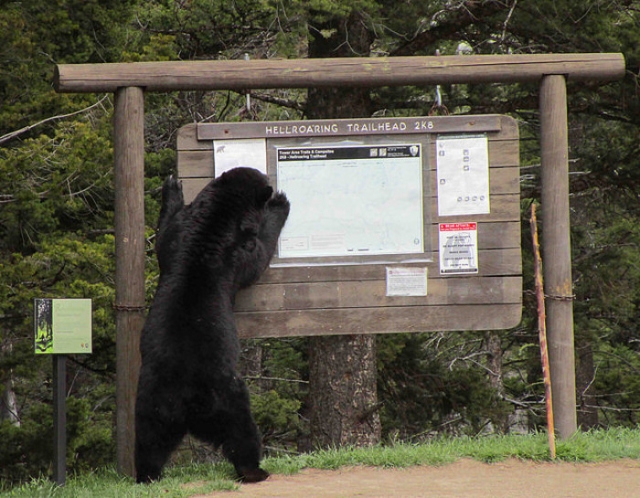
-
Nothing to see here
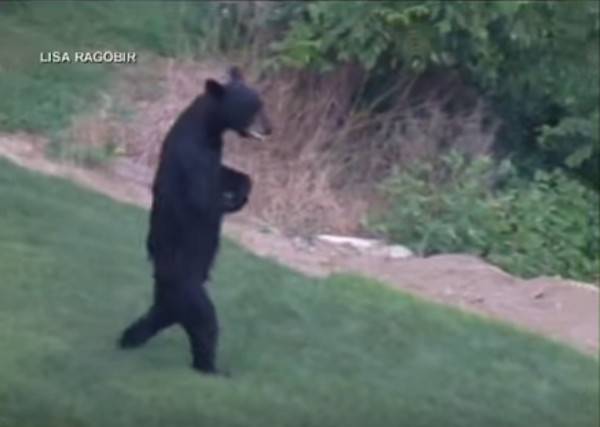
-
Yea, I'm not the cutest
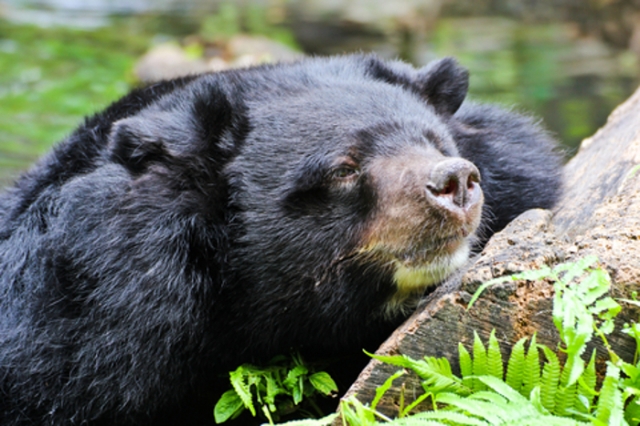
-
What's that?
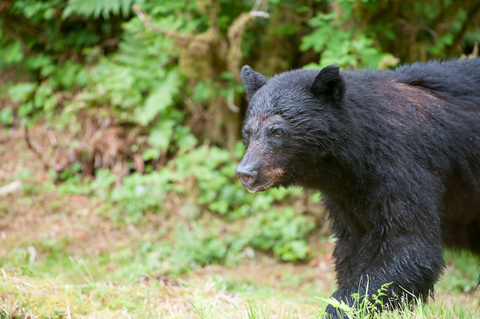
-
Black bear in field
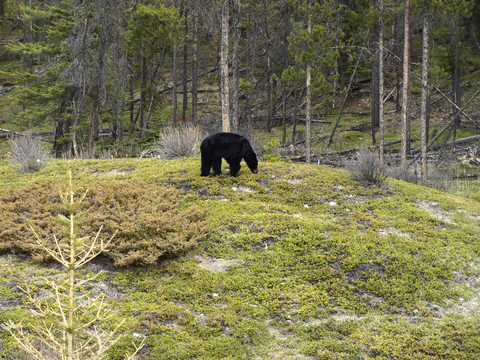
-
Grizzly in Glacier

-
Grizzlies in Alaska
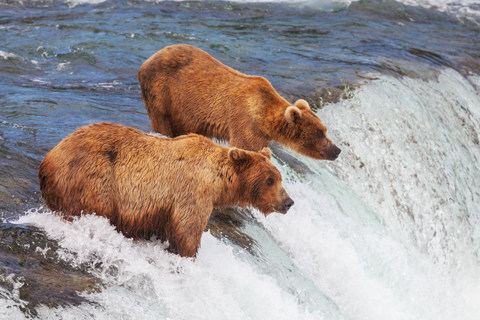
-
A stallion of a bear
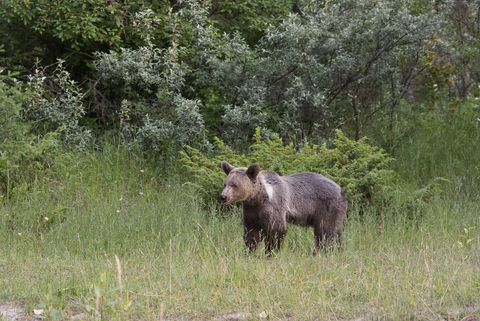
-
Big male grizzly
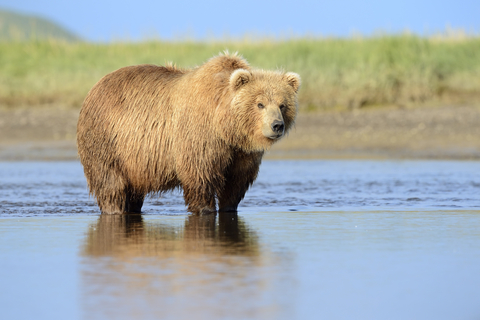
-
Hey big guy
